The court fight over bathroom access in Mukwonago schools
By Marisa Wojcik | Here & Now
July 14, 2023 • Southeast Region
After the Mukwonago Area School District required students use bathrooms according to their "original sex assigned at birth," the parents of an 11-year-old transgender girl filed a federal lawsuit.
A federal judge issued a preliminary injunction against the Mukwonago Area School District for a policy that states students can only use the bathroom according to each student’s original sex assigned at birth. The catalyst for the policy arose from an 11-year-old trans girl in the district and a sudden backlash from other parents.
“I got a phone call from the school letting me know that there was parents inquiring about my child,” said Jane Doe # 2 about her daughter, Jane Doe # 1.
“Wanting to know if my child was a boy, wanting to know about the genitalia in my child’s pants, like, asking questions that are really inappropriate,” her mother recounted.
The court is using pseudonyms for the plaintiffs to prevent further harassment. Her child is an 11-year-old girl at the Mukwonago Area School District. Her daughter was assigned male at birth but started identifying and living as a girl at home since the age of three.
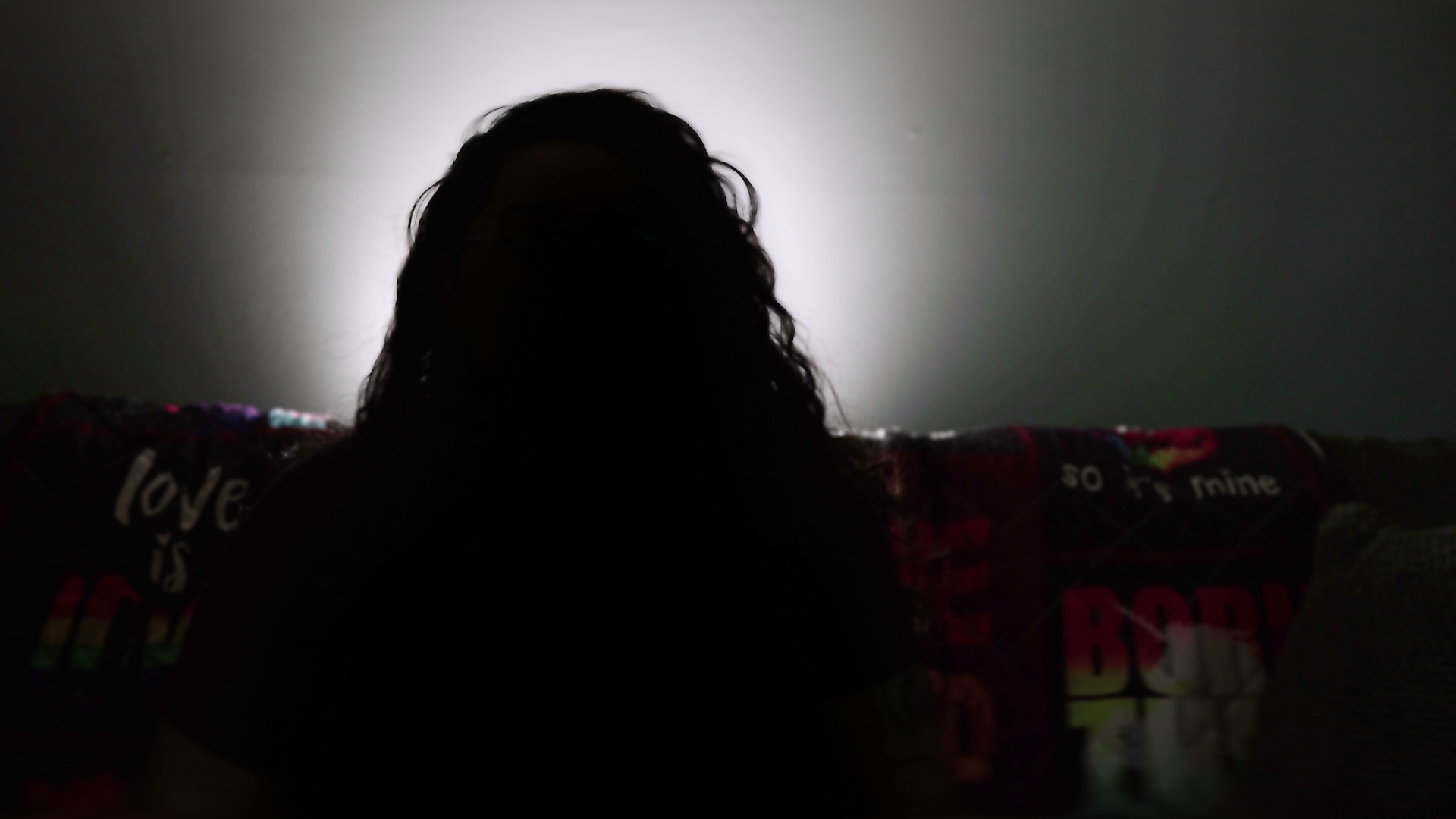
Jane Doe #2, whose identity is obscured in an interview, is the mother of an 11-year-old trans daughter attending the Mukwonago Area School District. They are suing the district over its barring the student from using girls bathrooms while attending school. (Credit: PBS Wisconsin)
“It’s just who she is, and it’s who she’s been since she was really little,” Jane Doe #2 explained. “She lived as a girl at home, and at school tried really hard to just be who everyone was expecting her to be. And she came home from school one day and said, ‘I can’t do this anymore. I can’t continue to live my life as this boy. It’s not who I am.'”
Despite years of her daughter using the girls’ bathroom at school, suddenly it was an issue. A May school board meeting took public comment on the matter.
“They moved it from the normal area at the district office to the high school gymnasium. They were expecting a lot of people to show up. They called the police department,” said Jane Doe #2. “Parents came in, and they were essentially saying, ‘I’m not okay with this. You don’t get to do this. What about my kids?'”
“I know the difference between a boy and a girl,” said one commenter at the board meeting.
“Our daughter’s rights need to be vehemently protected from this pervasive and false ideology that children can pick their gender,” said another.
“I’m here to say that the female sex remains in the female bathrooms and locker rooms, and the male sex remains in the male bathrooms and locker rooms,” said a third.
Jane Doe #2 offered a response.
“My daughter using that bathroom does not violate your daughter’s rights. Nothing about my daughter being in the bathroom, in the building, nothing violates your child’s rights because my child exists,” she said.
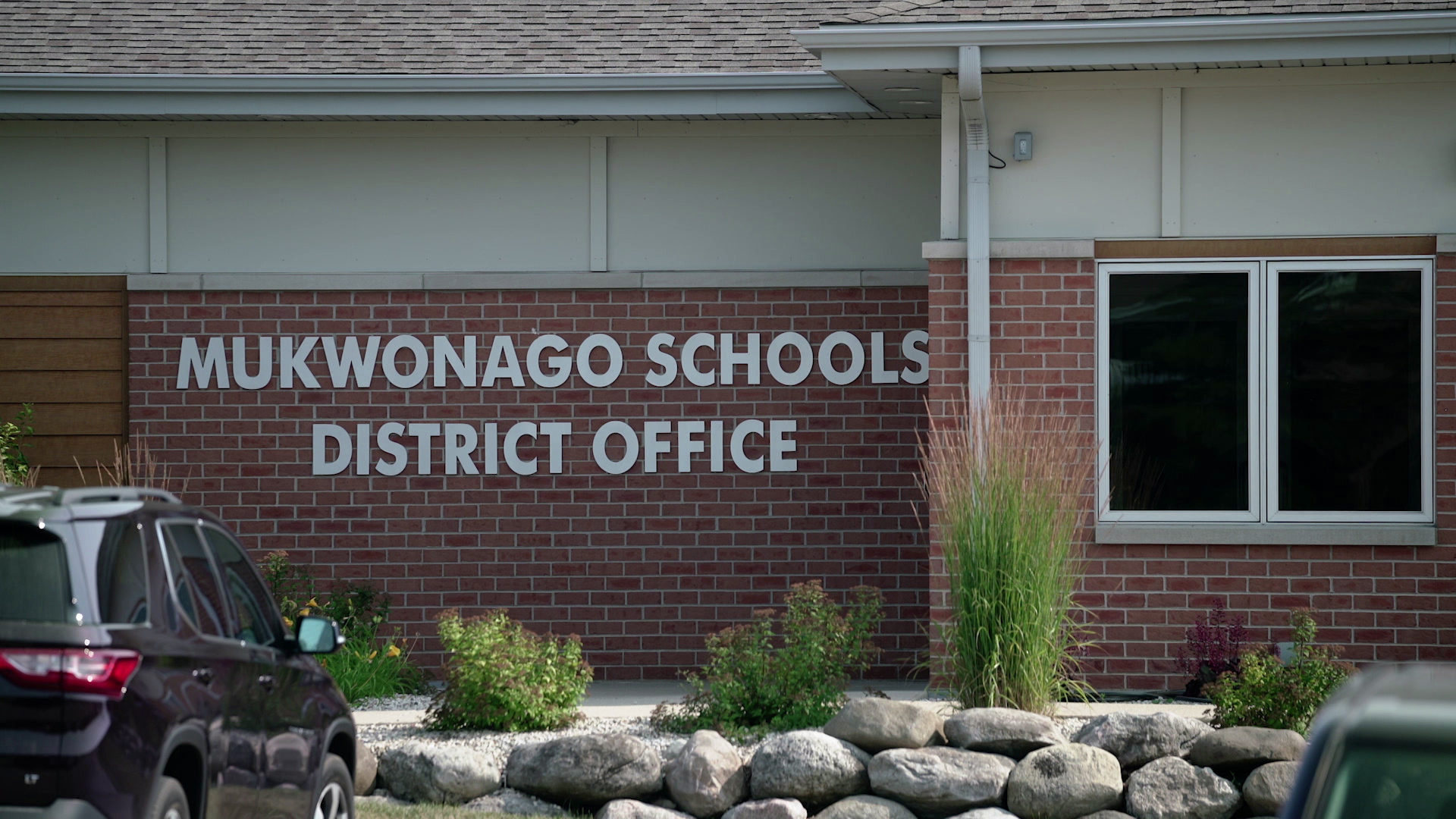
The Mukwonago Area School District is at the center of a legal dispute over gender identity and the rights of students. During a school board meeting on May 22, 2023, its members heard testimony from members of the public over which bathroom may be used by an 11-year-old trans student. (Credit: PBS Wisconsin)
A June school board meeting passed a policy stating students must use the bathroom according to each student’s original sex assigned at birth.
“I was at the board meeting and listening to all of these and I just cried,” Jane Doe #2 said. “I could not believe that this is what they were doing.”
She sought support from an attorney who has been through this before. In Whitaker v. Kenosha Unified School District, Alexa Milton represented a trans boy who was prevented from using the boys’ bathroom.
“We thought it was important to take action to make sure that that precedent was upheld, and that our client could exercise those rights that the court has said she has,” Milton said about filing a complaint in federal court.
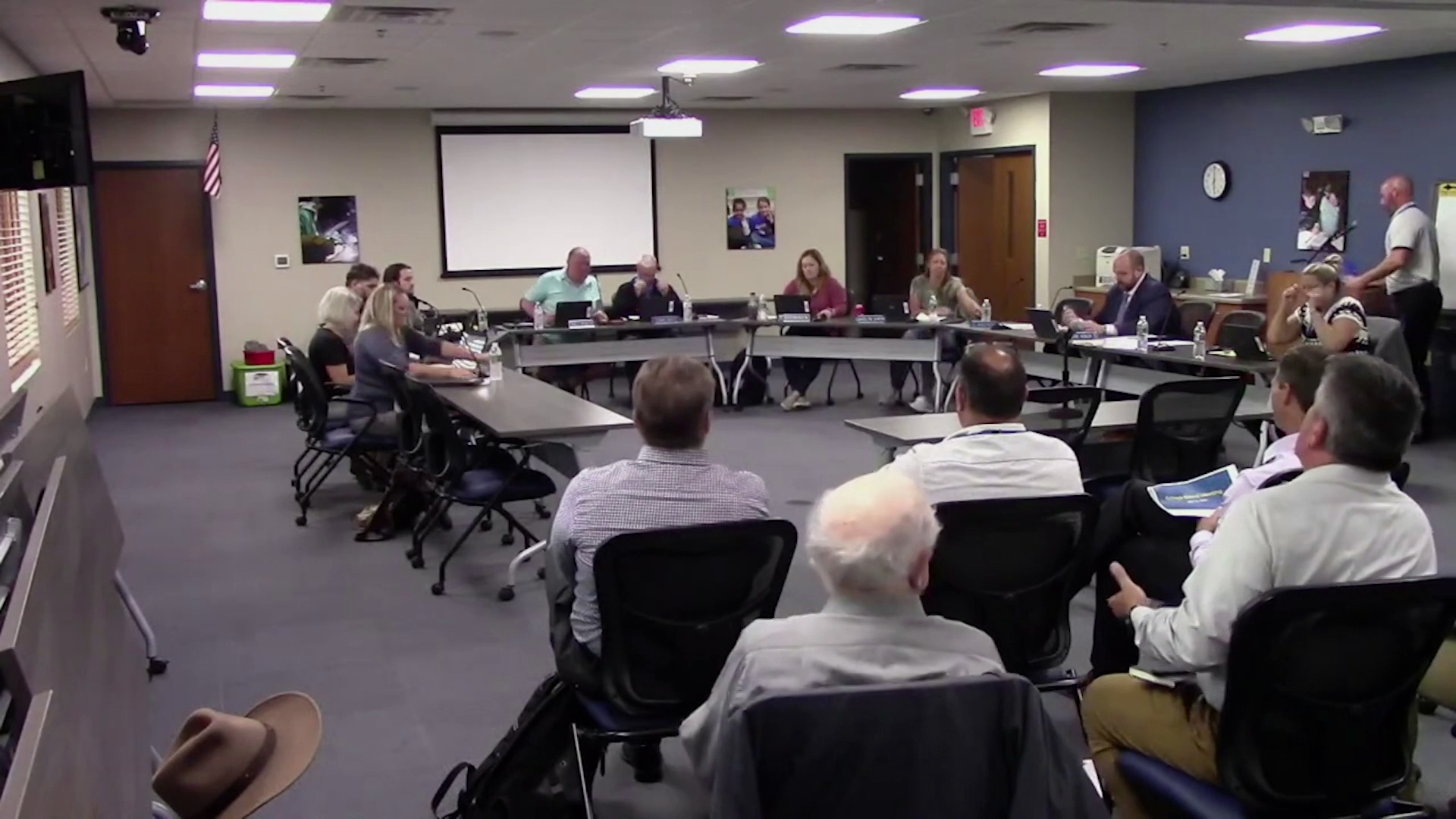
The Mukwonago school board holds at meeting on June 26, 2023. During the meeting, its members passed a policy that requires students to use bathrooms that correspond with the sex they were assigned with at birth, prompting the lawsuit filed on behalf of Jane Doe #1 and Jane Doe #2. (Credit: Mukwonago Area School District)
The district contends the safety and privacy of the other students using the bathroom justifies their policy.
“This abstract idea that somebody else’s privacy is being threatened is not enough to justify that. We all use the bathrooms every day in public places where there are other people in the bathroom, and that’s your privacy interest that we have isn’t more or less implicated based on the person in the stall next door being transgender,” Milton said about the plaintiffs’ position. “There hasn’t been any threat to the safety or privacy of other students. The threat has been to the safety and privacy of our client.”
In a brief, the district argued the mother and daughter have not availed themselves of less drastic solutions to effectively address the present situation. They stated Board Policy 5514 requires a team of district staff to consider exceptions or accommodations to this requirement on a case-by-case basis. The alternative to the student having to use the boys’ bathroom was offering a gender-neutral bathroom.
“Offering a gender-neutral alternative — if you are requiring the trans student to use it or use a bathroom not corresponding to their gender identity — doesn’t make the policy non-discriminatory. You’re still requiring something of that transgender student that you aren’t requiring of any other student,” said Milton.
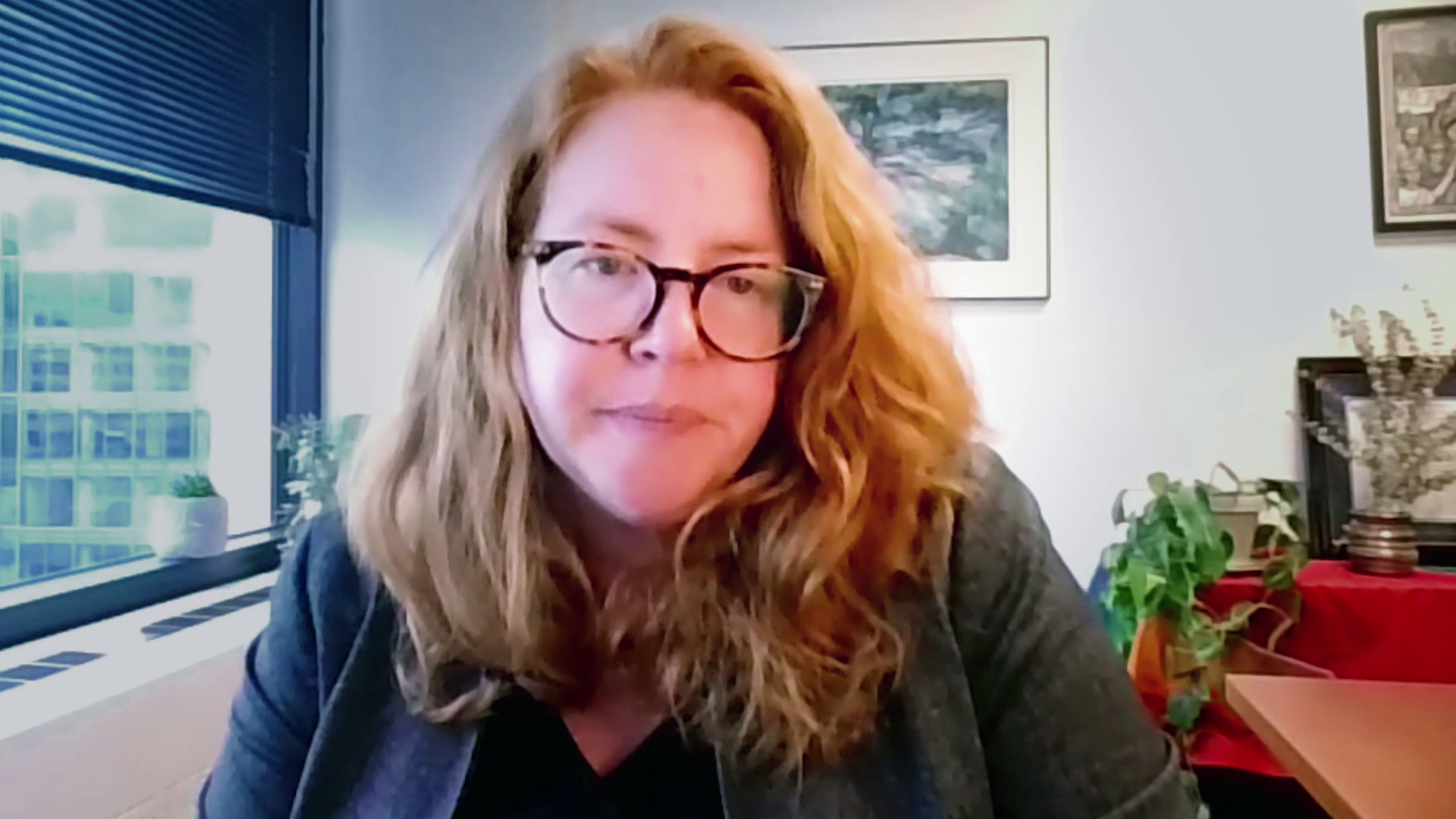
Alexa Milton, the lawyer representing Jane Doe #1 and Jane Doe #2 in their complaint against the Mukwonago Area School District, says the privacy and safety of her clients is what’s at issue in the dispute over the bathroom policy. (Credit: PBS Wisconsin)
“You’re endangering my child every time you try to force her into a different bathroom because you’re singling her out,” said Jane Doe #2. “You’re telling everybody she’s different, and that puts a target on her back.”
The district also said they vehemently refute any discrimination and strongly disagree with the baseless assertion that the policy will cause her irreparably harm.
“Our client has been facing increasing bullying and harassment at school since all of this started this spring,” said Milton.
“She has this constant worry of who is watching me today, who is going to follow me today,” Jane Doe #2 explained. “She’s voiced concern about if kids are going to hurt her in the bathroom. She’s concerned about people pulling her out of a restroom or people pushing her into the restroom she should be using.”
On July 11, federal Judge Lynn Adelman ruled in favor of the student and granted an injunction against the school policy.
The district declined to be interviewed. In a statement, they wrote, “the District will continue to defend our policy and move forward with an appeal of this injunction.”
“I think it’s important to keep in mind that we’re talking about a kid,” Milton said.
“She’s an amazing kid,” said Jane Doe #2 about her daughter. “She is funny and she’s silly and she likes to draw. She’s inquisitive and she loves science and she’s really involved in STEM things. She likes doing girly things and glitter and sequins and she’s just like every other 11-year-old kid, every other 11-year-old girl out there.”
 Passport
Passport




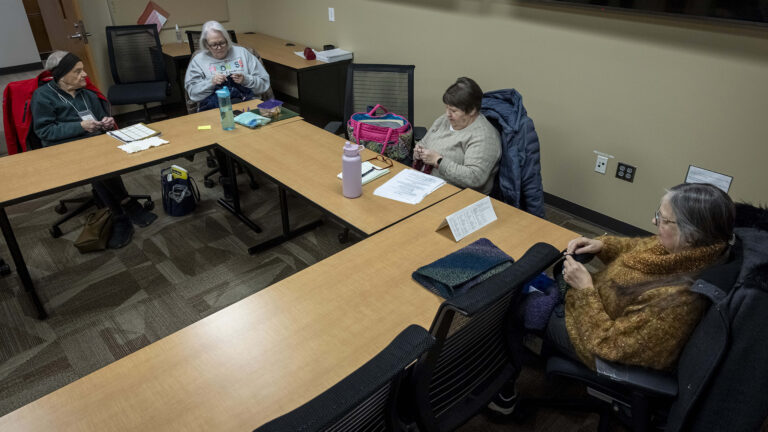
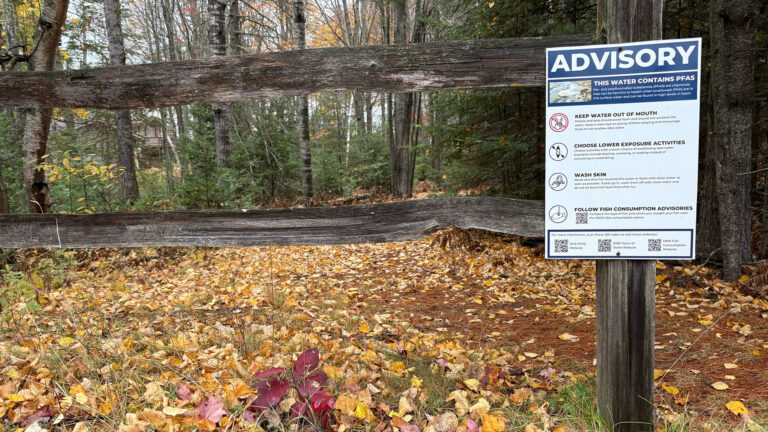
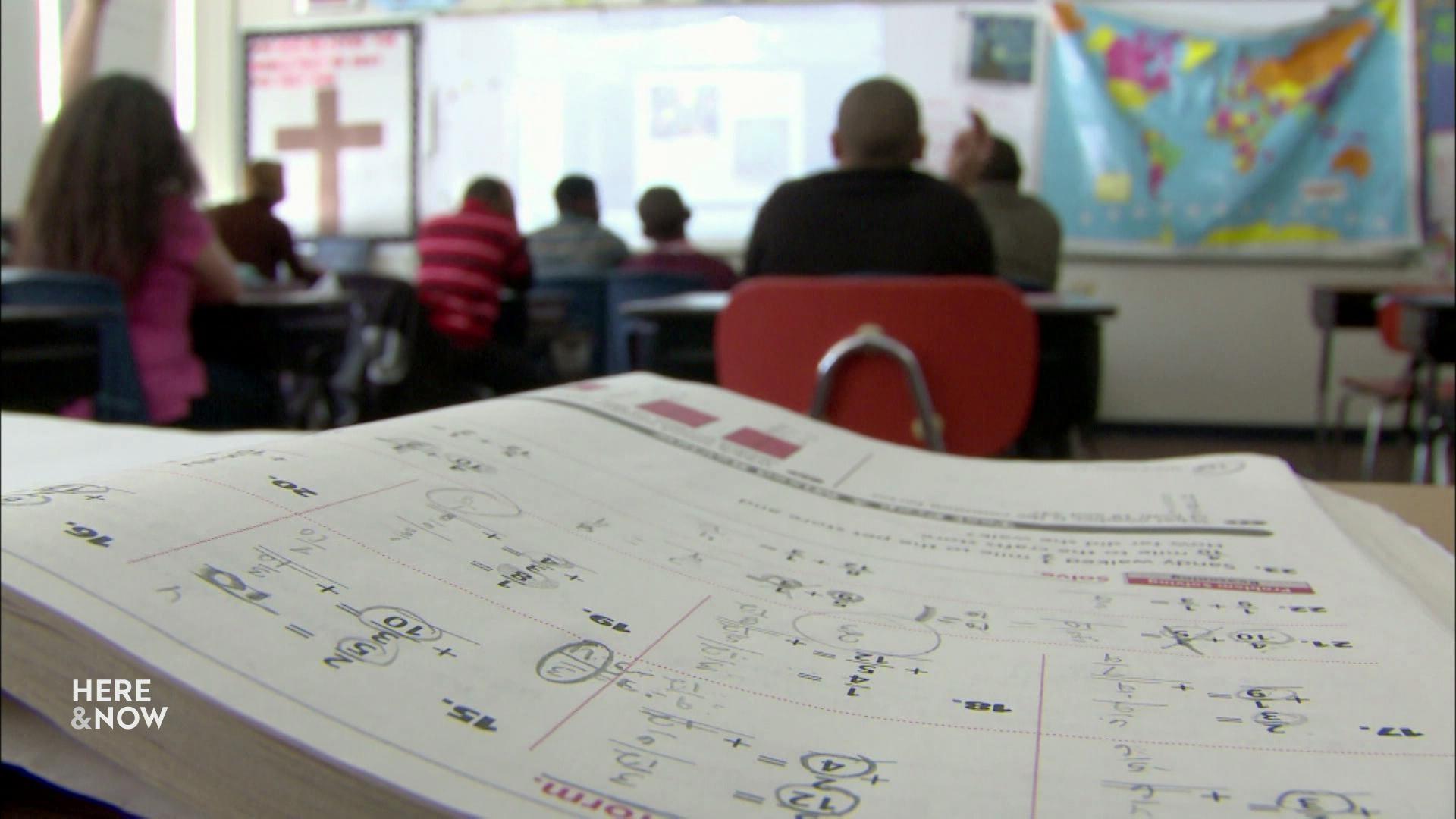
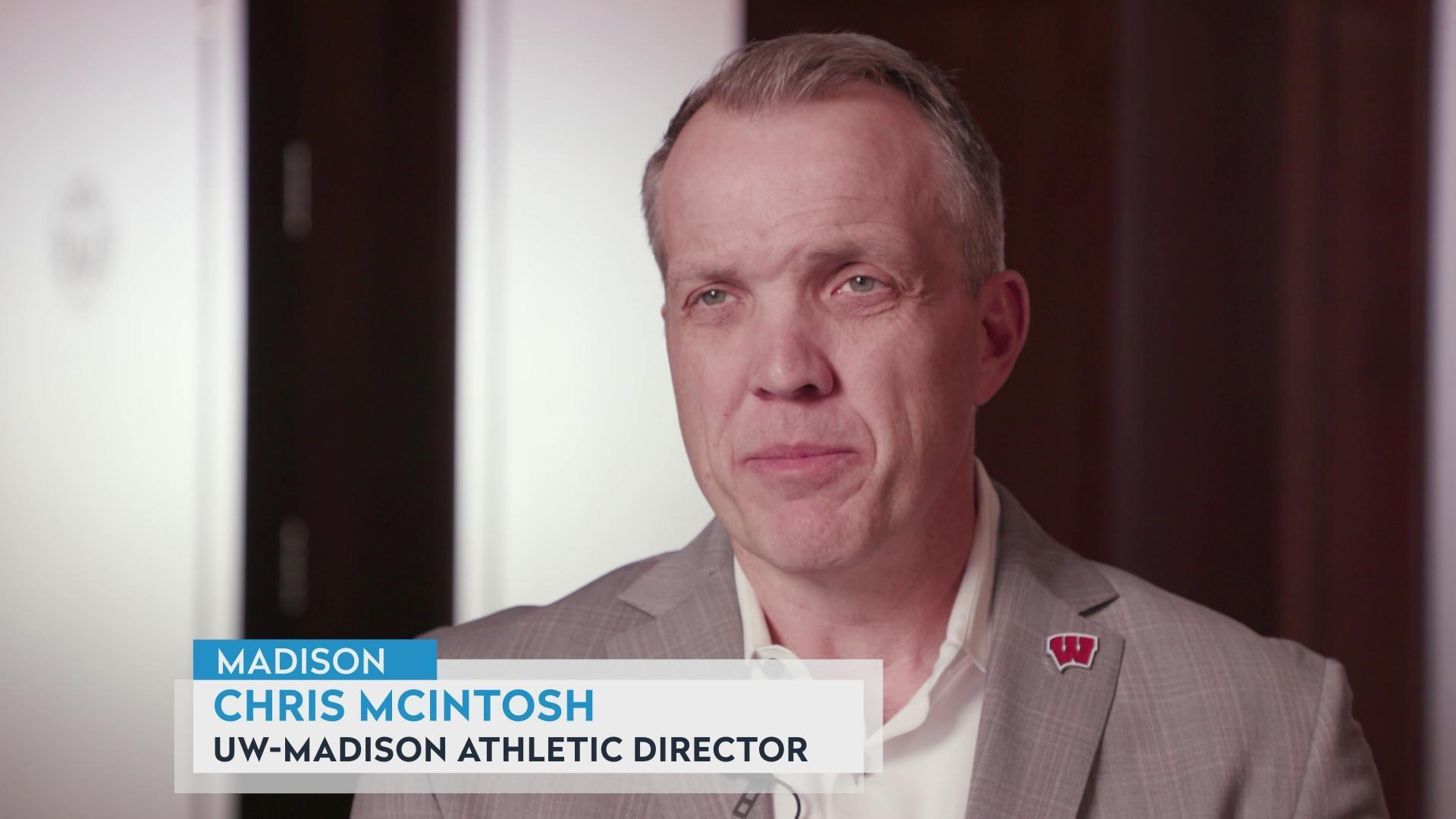
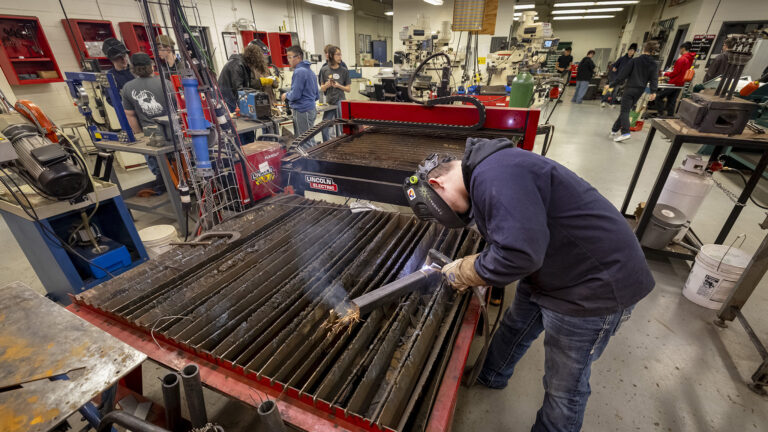
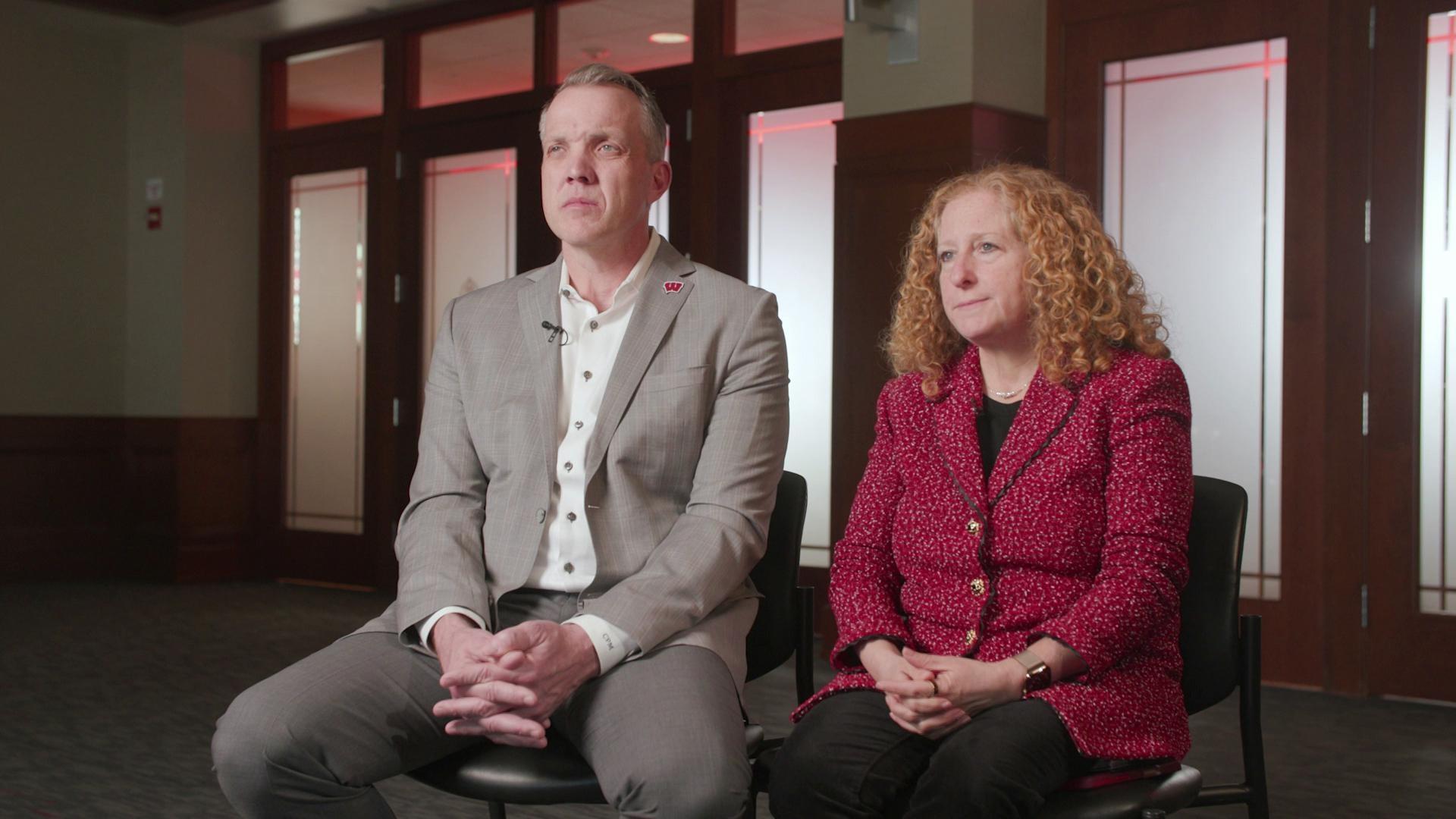

Follow Us